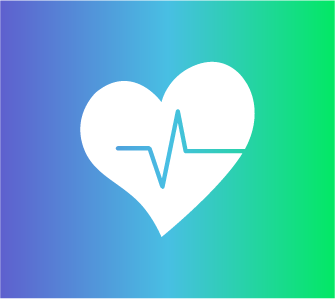When you’re hiring a physician, you want to get the best possible candidate while also ensuring that they’re being truthful about their credentials and licensing. As with any job, you’re going to do a thorough background check, double-check their certifications, and make sure their education checks out. This is a long, slow process, and the traditional method of physician hiring is open to many downsides including human error or simply breakdowns in older methods of data transmissions (e.g. faxes).
There are better ways to ensure that the person you’re hiring is who they say they are. Introducing: digital credentialing services. This process ensures accurate data reporting throughout the background investigation to the completion of the credentialing process, dramatically reducing human error increasing accuracy and reliability.
Let’s face it—improper or erroneous credentialing can be catastrophic in the event of malpractice. The solution: Digital Credentialing. Now you have access to faster, convenient, accurate, and reliable data by simply using a better method of credentialing that digital services provide. Let’s take a look at the top three reasons to switch to digital credentialing for your new physician hires.
1. Digital Credentialing is Faster
The process of gathering credentials for a physician goes through many different offices. From the certifications that they’ve earned to their education, work history, residency, and verification of their MCAT, there is a lot of information that each doctor has accumulated. Each of these points of data requires a person to collect the data, verify it, and fax it to someone else. Then that information needs to be gathered, organized, and verified again, then finally presented to you during the interview/consideration process.
When you need to hire someone as quickly as possible, this can feel like a daunting amount of time required. Additionally, if you have a prospective employee, you don’t want to have to wait forever to make an offer or you might risk losing them.
Digital credentialing streamlines this process storing all data electronically, while maintaining up-to-date accurate records at all times. Rather than having a long errand list of verifications at multiple different institutions, a health platform like ViTel can gather this information once, keep it current, and provide it almost immediately when our clients need it. This means that the data you get is extremely accurate, fresh, and delivered to you quickly.
2. No Long Paper Trails
Traditional credentialing requires a lot of faxing and independent verification using signatures, re-faxing, and waiting. Though the purpose here is a high degree of accuracy, this makes the process slower and wastes resources. It also leaves your potential employee open for data leakage. When the physician’s data is bouncing from fax to fax, there’s a chance that information can be lost. If even one page doesn’t go through correctly, you don’t have the complete picture.
Digital credentialing is done via secure data transfer and housed on our secure servers. There’s no chance of data loss or being incomplete—faster, more secure information handling at every step in the process is one of the biggest advantages of using a virtual verification process. ViTel uses DLT (Distributed Ledger Technology) providing the highest level of security in the healthcare industry.
3. Little Room for Human Error
Digital credentialing is extremely thorough—providing a complete end-to-end credentialing process, including recurring data analysis to ensure that all of the renewing data (certifications for instance) are up-to-date. Using digital credentialing for each physician’s static data means that it’s securely stored on ViTel’s servers and instantly available when requested.
Instead of this data being pulled by humans over and over, opening up space for them to lose information or forget to transmit a document, digital credentialing stores data accurately, ready to be used when needed. Because human error can be a legal point of attack in the event you’re sued, minimizing that risk is critical. Additionally, manual processes are simply slower than technology, and digital credentialing allows you to respond to inquiries in real time.
No more phone tag, no more waiting for faxes, and better veracity are all critically important benefits of digital credentialing services that ViTel can provide.
Access to a Broad Physician Database
By partnering with a virtual medical platform like ViTel, you have access to potential employees that we have already digitally credentialed. Whether you’re looking for a new employee for an already established brick-and-mortar office or you want to plug in some telehealth hours, ViTel can help. We can provide you with a robust list of potential credentialed physicians to partner with, and we can verify the credentials of physicians you are considering hiring.
Additionally, our platform helps streamline all of the processes that are truly cumbersome, from client billing to the process of patient intake. Best of all, we can work with both physical offices and telehealth practices. No matter how you run your healthcare business, ViTel can help make it more efficient, giving you more time to tend to your patients and less time on arduous administrative tasks.
Let us show you today how our revolutionary virtual health platform can change the way you do business, improving the lives of you, your employees, and your patients.






